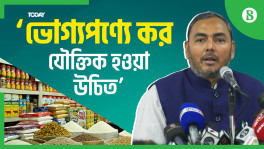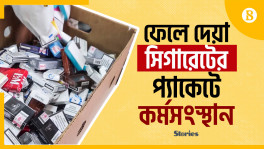Extreme poverty increases among waste collectors during pandemic

Extreme poverty increased among waste collectors and sanitation workers during Covid pandemic by 56 percentage points to 70% from 14% before pandemic, study has found.
The study also revealed Covid-19 pandemic impacted income for all types of workers where average household income decreased by 41% while one member of every three households became unemployed during the pandemic.
"Before Covid-19 14% HHs were under the poverty line but currently 70% HHs are under the poverty line," said the study.
These findings were revealed at a seminar Tuesday at Brac Centre Inn in the city.
BRAC and the Coca-Cola Foundation organised the seminar on the wellbeing of waste workers. Dhaka North City Corporation (DNCC) chief executive officer Selim Reza was present as the chief guest.
Alauddin Ahmed, project manager of Centre for Water Supply and Waste Management in International Training Network – Bangladesh University of Engineering and Technology (ITN-BUET) presented the findings.
The study was conducted on 500 HHs of 10 city corporations across the country. The categorised waste collectors and sanitation workers include pit emptier, waste collector, inorganic trader and cleaners/sweepers.
In his presentation, Prof Alauddin said before Covid-19, 75% of households took sufficient meals three times while it decreased to 21% during pandemic. Earlier 25% took three times insufficient meals but now it has increased to 46%. Now only 33% waste collectors and sanitation workers take two meals.
In this study, it was found that around 46% women waste workers reported violence and/or unsafe feeling at their workplace while 43% reported wages are not regular, outstanding, or lower. Around 38% of female waste workers faced domestic violence; 37% reported that the unpaid care works are not recognised or shared by any other family members while 17.5% of women waste workers faced difficulties to maintain personal hygiene. Around 16% of them suffered in managing menstrual hygiene.
Around 59% workers get treatment from government hospitals, the study added.
During Covid-19, the risk increased further as almost half of the waste workers (48%) and their family members (42%) experienced symptoms of Covid-19. Their work requires them to move across different areas and work in conditions of high health risk which increases the chances of spreading the diseases.
The study further observed that categorised as essential workforce under lockdown, but risks and contributions not visible. Health insurance for the workers is challenging due to size of the community, muster roll status of employment, low income and uncertainty of income, addiction to drugs and liquor, and lack of formal association among themselves.
Around 4.0 lakh waste pickers contribute recycling of 475 tonnes of waste per day (15% of waste generated) in Dhaka. Highest numbers of workers between the ages of 26-30. Females were mostly involved in road sweeping
Generally, the workers' working hours were 5-8 hours, but they work based on the job need, sometimes at night.
It was found from the New Clean Dhaka Master plan (2018-2032), 63.28% are food waste, paper 9.64%, plastics 8.84%, grass/wood 6.57%, sand/stones 5.83%, textiles 4.22%, rubber/leather 0.36%, metals 0.59% and others 0.68%.
The seminar highlighted the findings of the project called "Bandhan", aimed at developing a model for safe life and livelihood of waste workers in Dhaka city. BRAC Urban Development Programme, in partnership with the Coca-Cola Foundation, is implementing the pilot project 'Bandhan' to target the wellbeing of 3,500 people working with waste in Dhaka, through a tailored service package delivered through community service centers.
Speakers at the programme observed that people involved in the waste management process are extremely marginalised and socially excluded.
Joint efforts are imperative to improve their lives and livelihoods. More and longer-term interventions are required to address issues including earning, living conditions, access to basic services, social status, safety, agency and financial inclusion.
The experts suggest that, without stronger policy advocacy and interventions to overhaul the entire waste management ecosystem, sustainable change will not be possible.
In the seminar Md Selim Reza, Chief Executive Officer, Dhaka North City Corporation, said "We want to develop a participatory and a caring society where we work together to improve the lives of the people who are working so hard to keep our cities clean. We will try our level best to take the suggestions from this seminar findings to improve the lives of the waste workers."
The seminar highlighted the findings of the project called "Bandhan", aimed at developing a model for safe life and livelihood of waste workers in Dhaka city. BRAC Urban Development Programme, in partnership with the Coca-Cola Foundation, is implementing the pilot project 'Bandhan' to target the wellbeing of 3,500 people working with waste in Dhaka, through a tailored service package delivered through community service centres.


 Keep updated, follow The Business Standard's Google news channel
Keep updated, follow The Business Standard's Google news channel
















